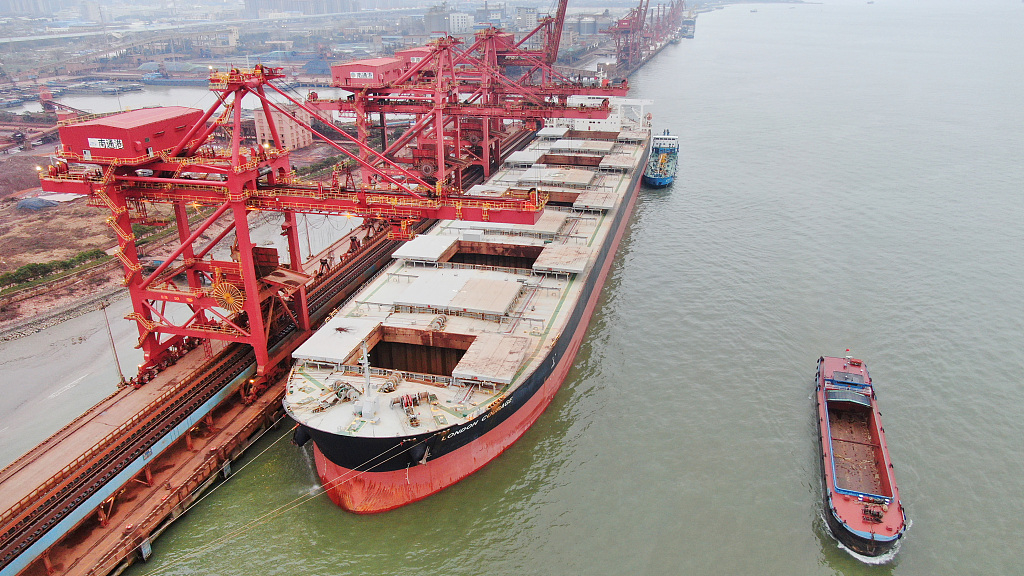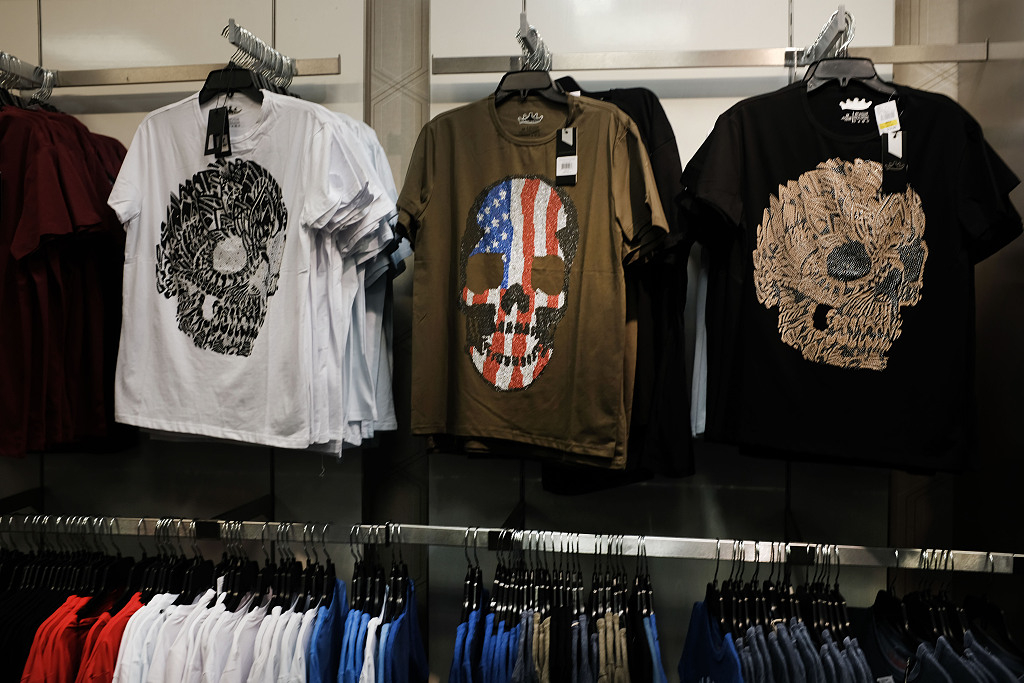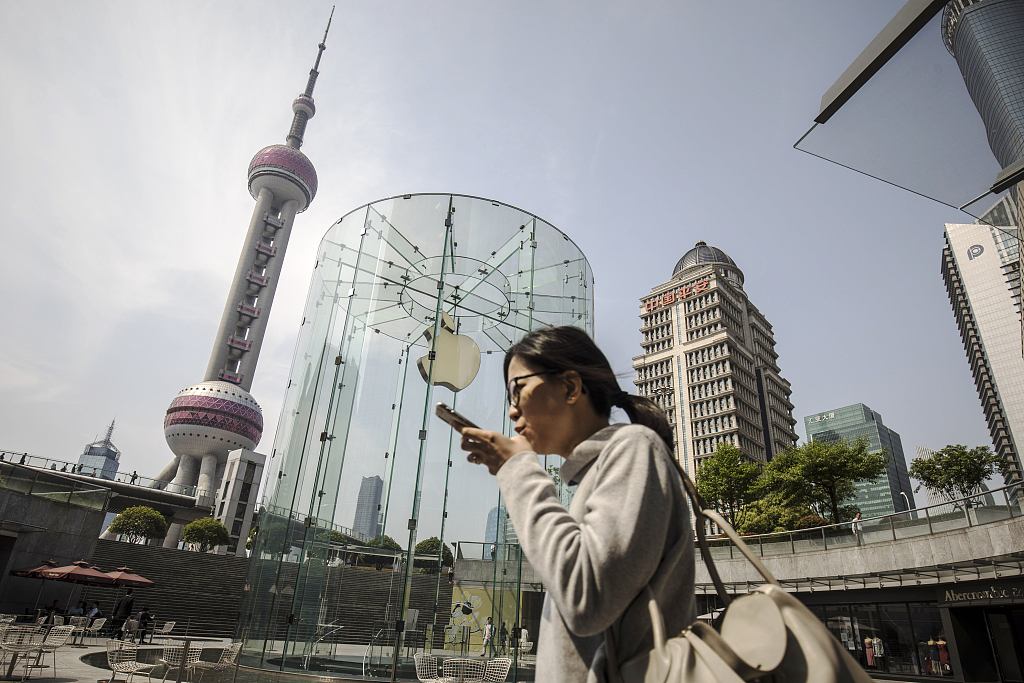
Opinion
22:45, 13-May-2019
Many may suffer due to prolonged trade war
Adam Garrie

Editor's Note: Adam Garrie is the director of the UK-based global policy and analysis think tank Eurasia Future and co-host of the talk show "The History Boys." The article reflects the author's opinion, and not necessarily the views of CGTN.
As the latest counter-measure against the escalating Sino-U.S. trade friction, China has decided to increase tariffs targeting 60 billion U.S. dollars' worth of U.S. products, effective June 1, 2019. China always insists on solving disputes through negotiations and both sides can benefit from an end to the trade war.
One of the unspoken taboos regarding this trade war is that while there are sectors in both the U.S. and China that have needlessly suffered under the pressure of tariffs, both the Chinese and U.S. economies have enjoyed growth that has exceeded forecasts. This growth has been in spite of rather than because of the trade war.

China-made shirts, including one with the colors of the American flag, are displayed for sale at a Manhattan department store, New York City, May 07, 2019. /VCG Photo.
China-made shirts, including one with the colors of the American flag, are displayed for sale at a Manhattan department store, New York City, May 07, 2019. /VCG Photo.
In China's case, continued steps to reform and open up the economy have met with international enthusiasm that has led to bullish trends on Chinese markets. China's modernized and streamlined foreign direct investment law, continued steps to achieve high quality development and domestic innovation along with China's bold move to increase imports to historic levels within the framework of global Belt and Road connectivity have also been key factors behind China's robust economic condition.
In the U.S., decades of regulatory burdens that reached new heights after 2008 have been slashed by Trump. In spite of Trump's complaints about the policies of Federal Reserve chairman Jerome Powell, Powell's policies of mild quantitate tightening have helped to stabilize the economy and curtail inflation. This has led to generally positive growth and employment numbers in the United States.
It is equally true that the Chinese and the U.S. economies would benefit greatly from an end to the trade war. The fact that markets in both countries responded positively to rumors that an end to the trade war was near is one clear confirmation of this. Even so, China's economy can withstand the worst of the trade war until common sense prevails and the U.S. will also not endure extreme suffering in spite of tariffs tying one hand behind the proverbial American economic back.

China-made jackets are displayed on sale at a Manhattan department store, New York City, May 07, 2019. /VCG Photo.
China-made jackets are displayed on sale at a Manhattan department store, New York City, May 07, 2019. /VCG Photo.
The same however cannot be said for developing nations caught in the crossfire of the trade war that Trump has instigated between the world's largest and second-largest economies. During times of global economic uncertainty, the first places from which private investors withdraw their liquid assets are markets in the developing world. In the minds of private investors, emerging markets represent high-risk/high-reward scenarios that are best avoided when global economic trends are shaky.
The downside of the U.S. Federal Reserve's mildly conservative monetary policies is that the dollar liquidity squeeze has disproportionally affected developing economies that now find themselves in an American debt trap under the weight of a bullish dollar and unforgiving interest rates.Trump's global rise in tariffs as well as his policies of trigger-happy sanctions have likewise put pressure on emerging markets by creating extreme uncertainty among potential partners from the private sector.
It soon becomes easy to see how an extended and expanded trade war waged by Washington on China will compound these existing trends by forcing investors to retreat into safe havens including both the U.S. and China. This is not something that China wants to see as China looks toward long term realities in which an ever more interconnected world will benefit from win-win prosperity that suits the needs and aspirations of both emerging markets and advanced economies.

A woman walks past an Apple Inc. store entrance in Shanghai, China, May 9, 2019. /VCG Photo.
A woman walks past an Apple Inc. store entrance in Shanghai, China, May 9, 2019. /VCG Photo.
In the short term, the U.S. insistence on a protectionist mentality will highlight the importance of the Belt and Road Initiative (BRI) to Asian, Latin American and African countries. It remains China's priority to invest in developing countries in order to achieve economic growth that will both bolster local living standards and help develop new and dynamic global supply chains and trading corridors to the mutual benefit of all economic partners.
For every problem there is a solution. In terms of the trade war itself, negotiations will continue as China will press for a win-win agreement in spite of the fact that Trump has publically claimed that he enjoys the gamesmanship element of the trade war. That being said, with a U.S. election just over a year away, both sides will stand to benefit from the economic boosts that inevitably come from resolving trading issues.
(If you want to contribute and have specific expertise, please contact us at opinions@cgtn.com.)

SITEMAP
Copyright © 2018 CGTN. Beijing ICP prepared NO.16065310-3
Copyright © 2018 CGTN. Beijing ICP prepared NO.16065310-3